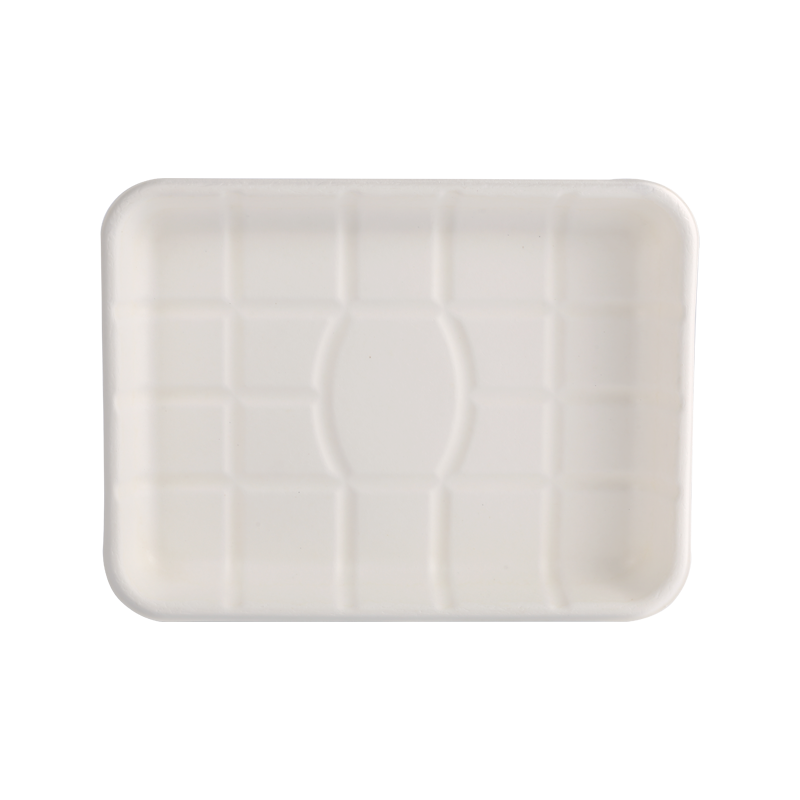In the pursuit of environmental stewardship, bagasse tray manufacturers are setting a new standard for eco-friendly packaging solutions. Bagasse, a byproduct of sugarcane processing, is the sustainable raw material that gives our trays their unique green credentials. Here's an in-depth look at the environmental advantages of our bagasse trays and how they contribute to a greener tomorrow.
At the heart of our product's eco-friendliness is the use of bagasse, a renewable resource that would otherwise be discarded. By repurposing this waste material, we not only reduce landfill waste but also promote a circular economy where resources are used efficiently and responsibly.
Our bagasse trays are fully biodegradable, breaking down naturally within a few months in a compost environment. This characteristic significantly reduces the environmental impact compared to traditional plastic trays, which can take hundreds of years to decompose and contribute to pollution.
The production of bagasse trays requires less energy and generates fewer greenhouse gases compared to the manufacturing of plastic trays. This results in a lower carbon footprint, aligning with global efforts to combat climate change and reduce carbon emissions.
Bagasse is a natural material, free from harmful chemicals and toxins. This makes our trays safe for direct food contact, ensuring that no harmful substances leach into the food during storage or transportation.
The production process of bagasse trays does not require additional water or soil resources, unlike some other materials that demand extensive irrigation or land use. This helps in preserving water and soil for other essential uses.
By using bagasse, we support sustainable agriculture practices. Sugarcane, the source of bagasse, is a crop that can be grown in rotation with other crops, improving soil health and reducing the need for synthetic fertilizers.
Despite their eco-friendly nature, our bagasse trays are not limited in terms of functionality. They are available in various sizes, shapes, and designs, making them suitable for a wide range of applications, from food service to retail packaging.
At the end of their useful life, bagasse trays can be composted, returned to the soil as mulch, or even used as a biofuel, providing multiple options for their disposal that are in line with environmental best practices.
Bagasse tray manufacturers are not just producing a product; we are contributing to a global movement towards sustainability. Our trays are more than just packaging—they are a symbol of our commitment to protecting the environment for future generations. By choosing our bagasse trays, you are making a conscious decision to reduce your ecological footprint and support a greener, cleaner world.

